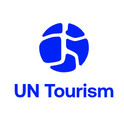UNWTO and NEOM Launch ‘Tourism Experiences Of The Future’ Challenge
UNWTO and NEOM have partnered for a new initiative focused on the future of tourism in Saudi Arabia.
The ‘Tourism Experiences of the Future’ challenge will source innovative ideas and disruptive business models related to the tourism needs of the future, in line with growing demand for new experiences. All proposals must be aligned with the Sustainable Development Goals and should include the introduction or adaptation of digital and technological elements, as well as being focused at least one of the following areas:
- Optimizing and maximizing the potential of experiential tourism
- Harnessing the positive impact of new technology
- Alternative business models
- Innovative experiences
The competition is the first national initiative dedicated to identifying new companies that will lead the tourism sector’s transformation in Saudi Arabia. As well as established businesses, the competition also welcomes applications from Saudi Arabian start-ups and innovators with ideas capable of revolutionizing and inspiring tourists by presenting new ways and reasons to travel.
Applications are open until 24 October, with great interest expected, and participants must be Saudi citizens with legal capacity to enter into a contract. Successful projects will be selected based on various criteria, such as the degree of innovation, their viability and sustainability.
An Affiliate Member of UNWTO since 2019, NEOM is an accelerator of human progress and a vision of what a new future might look like. Located in northwest Saudi Arabia along the Red Sea, NEOM is ideally situated at the crossroads of the world, comprising a total area of 26,500 km². A special authority has been established to oversee NEOM, chaired by His Royal Highness Prince Mohammed bin Salman.
RELATED LINKS
About UN Tourism
The World Tourism Organization (UN Tourism) is the United Nations agency responsible for the promotion of responsible, sustainable and universally accessible tourism.
As the leading international organization in the field of tourism, UN Tourism promotes tourism as a driver of economic growth, inclusive development and environmental sustainability and offers leadership and support to the sector in advancing knowledge and tourism policies worldwide.
Our Priorities
Mainstreaming tourism in the global agenda: Advocating the value of tourism as a driver of socio-economic growth and development, its inclusion as a priority in national and international policies and the need to create a level playing field for the sector to develop and prosper.
Promoting sustainable tourism development: Supporting sustainable tourism policies and practices: policies which make optimal use of environmental resources, respect the socio-cultural authenticity of host communities and provide socio-economic benefits for all.
Fostering knowledge, education and capacity building: Supporting countries to assess and address their needs in education and training, as well as providing networks for knowledge creation and exchange.
Improving tourism competitiveness: Improving UN Tourism Members' competitiveness through knowledge creation and exchange, human resources development and the promotion of excellence in areas such as policy planning, statistics and market trends, sustainable tourism development, marketing and promotion, product development and risk and crisis management.
Advancing tourism's contribution to poverty reduction and development: Maximizing the contribution of tourism to poverty reduction and achieving the SDGs by making tourism work as a tool for development and promoting the inclusion of tourism in the development agenda.
Building partnerships: Engaging with the private sector, regional and local tourism organizations, academia and research institutions, civil society and the UN system to build a more sustainable, responsible and competitive tourism sector.
Our Structure
Members: An intergovernmental organization, UN Tourism has 160 Member States, 6 Associate Members, 2 Observers and over 500 Affiliate Members.
Organs: The General Assembly is the supreme organ of the Organization. The Executive Council take all measures, in consultation with the Secretary-General, for the implementation of the decisions and recommendations of the General Assembly and reports to the Assembly.
Secretariat: UN Tourism headquarters are based in Madrid, Spain. The Secretariat is led by the Secretary-General and organized into departments covering issues such as sustainability, education, tourism trends and marketing, sustainable development, statistics and the Tourism Satellite Account (TSA), destination management, ethics and risk and crisis management. The Technical Cooperation and Silk Road Department carries out development projects in over 100 countries worldwide, while the Regional Departments for Africa, the Americas, Asia and the Pacific, Europe and the Middle East serve as the link between UN Tourism and its 160 Member States. The Affiliate Members Department represents UN Tourism's 500 plus Affiliate members.
UN Tourism Communications Department
+34 91 567 8100
UN Tourism


